I was recently in England for a few weeks and had gone with a little of last year’s spring tea tucked under my arm.
The previous time I had been in the UK was nearly 2 years earlier, and on that occasion I had also taken some tea which was spring tea from that year – 2010.
I had left a couple of cakes with a friend who had stored them in no particular way in his bedroom. I feared the tea would be nigh on ruined, so was pleasantly surprised to discover that it was actually quite decent.
I decided it would be interesting to compare a couple of cakes – a Bulang Peak from 2010 that had been in England since September 2010 (i.e. a 2 year old tea that has been in England for 20 months +) and a 2011 Bulang Peak that had been in Jinghong for a year. True, it wasn’t comparing like with like, but I thought it might prove interesting nonetheless.
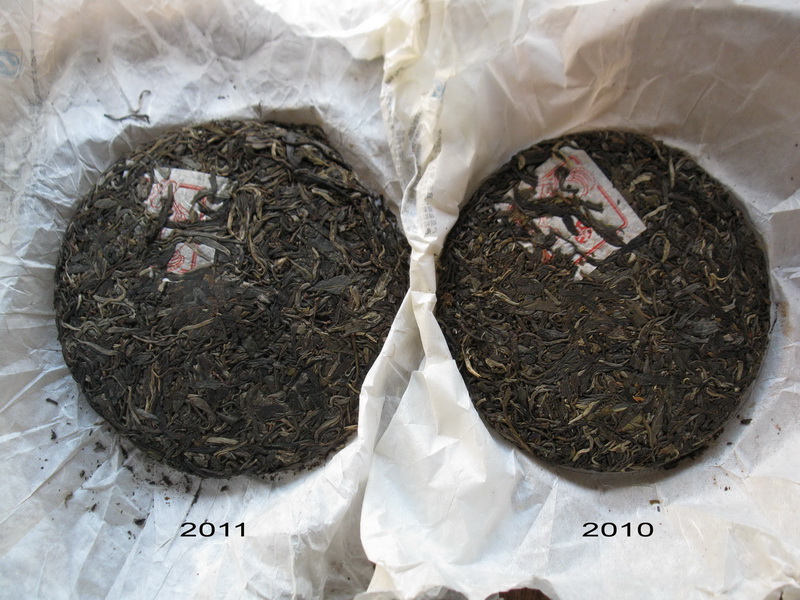
I borrowed a camera to take a few photos -They don’t bear too much scrutiny, but give a reasonable impression as it was the comparison that I was interested in.
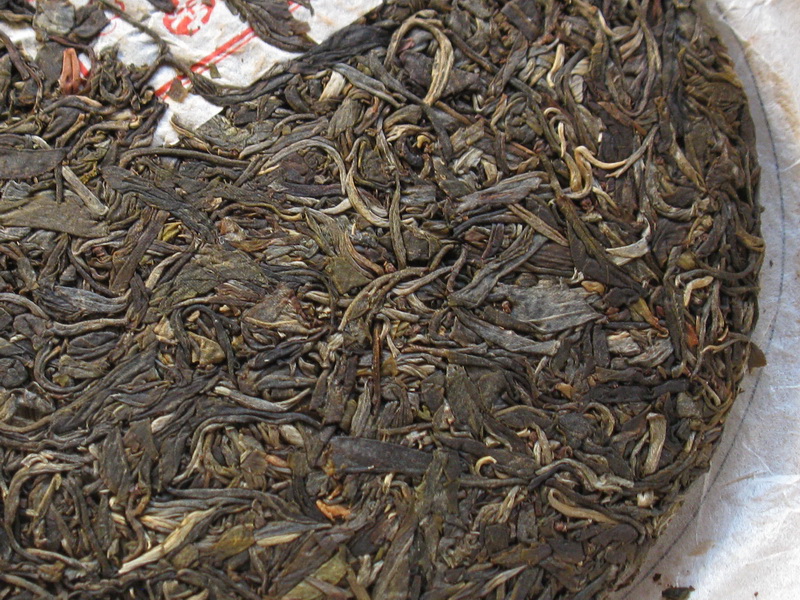
The first thing that was obvious was that the 2010 cake had aged quite well. It is clear from the photo that the leaves are darker.
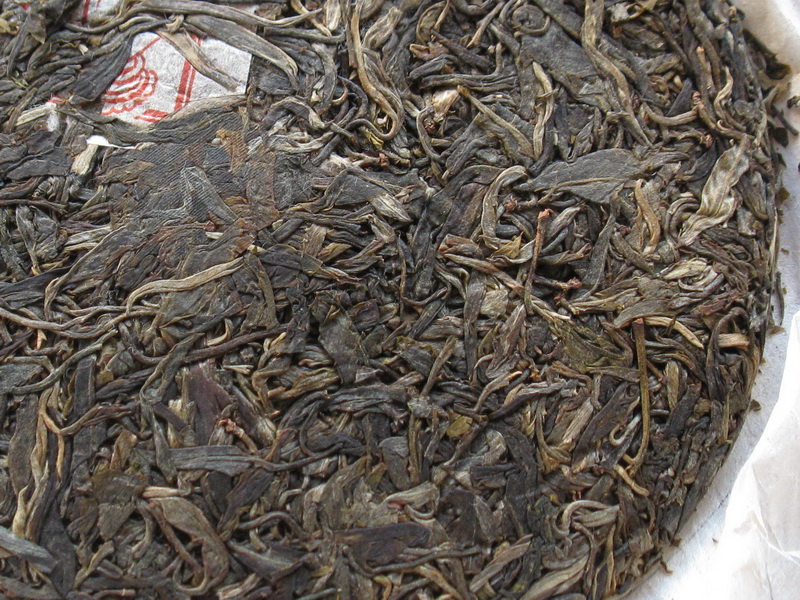
The UK stored cake is slightly drier, which is not so easy to detect in the picture, but it has not dried out as much as I thought it might and the tea has a little chen wei. It has lost some astringence, has a nice fragrance and huigan. The wet leaves have some fruity-tobacco scents and the broth was an amber-orange.
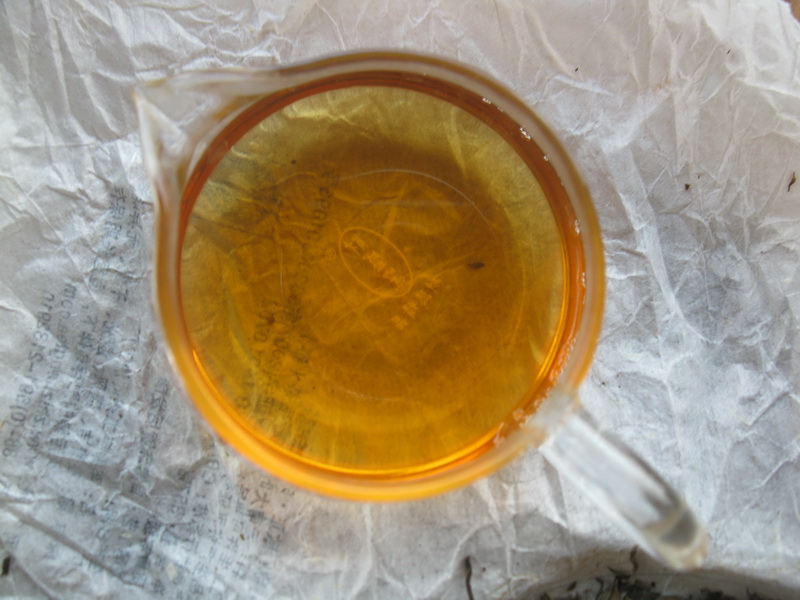
I pushed the 4th steeping which produced a pleasant kuwei, but this was soon followed by a sweetness in the throat and mouth, and some fragrance floating up into the nose accompanied by a lingering bitterness on the upper palate.
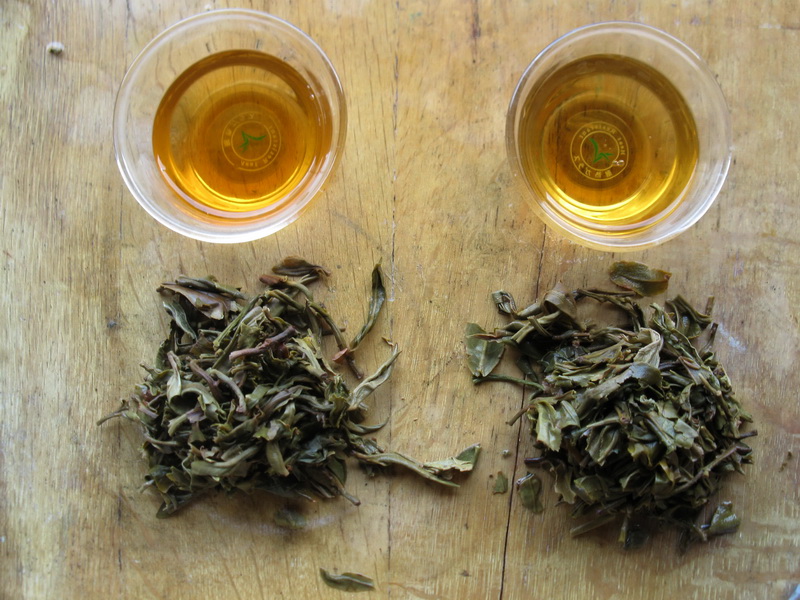
The 2011 cake was somewhat similar as one might expect, but with more kuse, a lighter, more amber orange broth colour as well as a less distinct chenwei than the older cake.
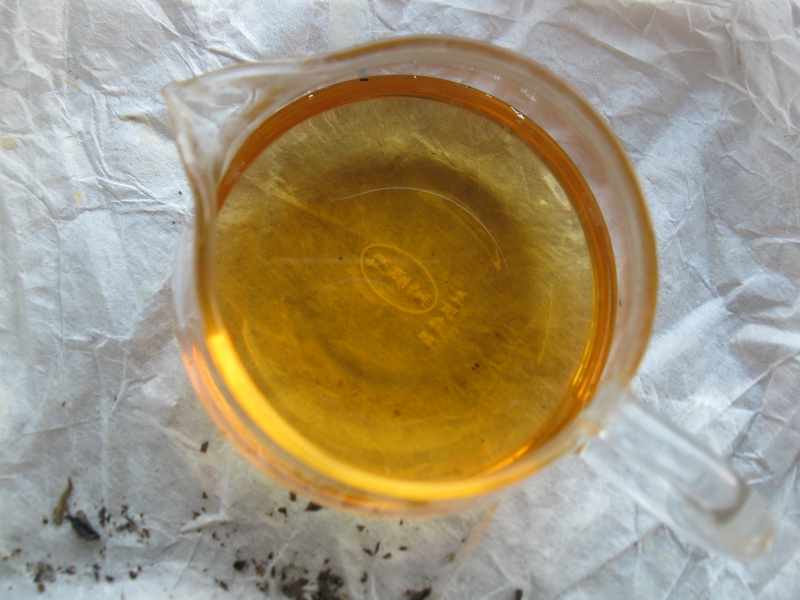
So what seems interesting in this is that England, at least in the last couple of years, in my friends house, was not a bad environment for storing Puer. Of course, a longer storage time might bring out problems that are not so obvious now – the tea may dry out too much – but for now the result is not bad.
I’m quite sure that the tea kept in Jinghong has aged more quickly than the tea in England, that would be normal, but the UK stored tea compared well and highlights that the ‘Holy Grail’ of an ideal Puer aging environment might be worth striving for, of course, but may not be absolutely necessary. If one accepts that your tea is going to age more slowly, as the Bard of Oxford maintains, a cooler climate may work fine.
